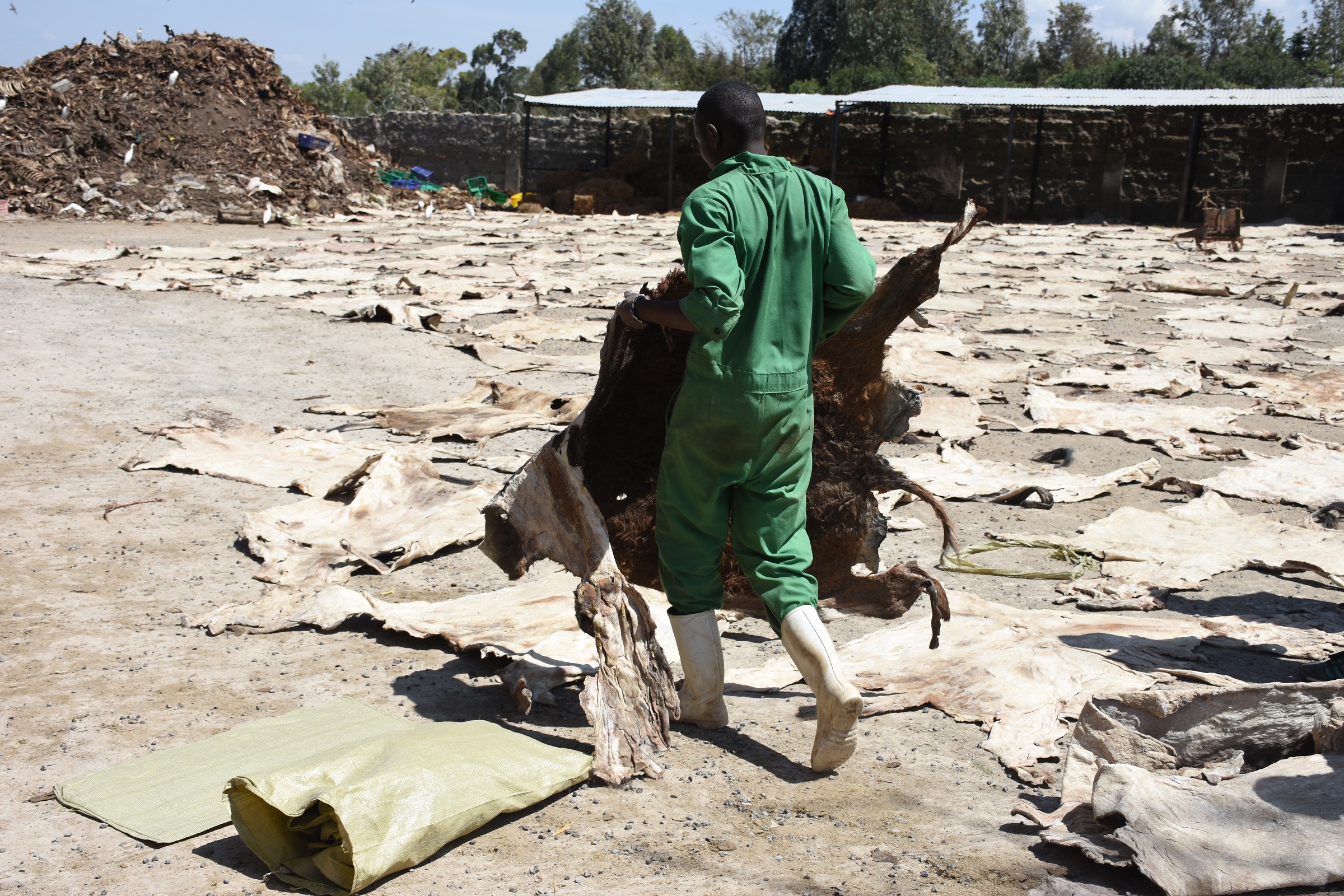
The size and scale of the illegal online donkey skin trade has been revealed for the first time, with thousands of skins currently for sale on unregulated B2B websites, as well as well-known social media platforms.
These findings form part of The Global Trade in Donkey Skins: A Ticking Time Bomb report from The Donkey Sanctuary, which has uncovered how organised crime is facilitating the trafficking of donkey skins to satisfy demand for ejiao, a traditional Chinese remedy.
It’s estimated that over 4.8 million donkeys are trafficked and slaughtered for their skins each year, which is used in the production of ejiao.
The donkeys suffer at every point of this process, from source to slaughter, due to the brutal and inhumane conditions that are a hallmark of this industry.
Even the most vulnerable donkeys, including pregnant mares, young foals, and the sick and injured are taken and traded without consideration for their welfare or their pain.
The Donkey Sanctuary’s report cites the findings of a research paper by an interdisciplinary team from Oxford University’s Saïd Business School and Wildlife Conservation Research Unit (WildCRU).
The research – which the charity funded – was able to identify a clear scientific link between the illegal wildlife trade and donkey skin trade. Building on these findings, The Donkey Sanctuary has now exposed illegal trading on multiple online platforms.
The full paper – The Link Between Wildlife Trade and the Global Donkey Skin Product Network (https://we.tl/t-lVfqEj2vc3) – has been published today in Conservation Science and Practice.
Role of online platforms
The Donkey Sanctuary’s report identified the vast online network of organised criminals offering donkey skins for sale, often alongside other illegal wildlife products including rhino horns, pangolin scales, elephant ivory and tiger hides.
Evidence of 382 individual traders were identified on business-to-business eCommerce sites offering donkey hides, with almost 20 percent of those traders also selling other wildlife products.
In some extreme cases, The Donkey Sanctuary uncovered these traders were additionally trafficking narcotics, fake passports and human hair, providing further evidence of how deeply the donkey skin trade is embedded in organised crime.
The illicit trade also extends beyond B2B eCommerce sites to well-known social media platforms like Facebook, Instagram and Twitter.
The Donkey Sanctuary uncovered dozens of adverts for skins on sale on social media, which suggests that it is a thriving marketplace for the trade, with one trader in Kenya saying he had 2,000 skins available immediately. Many listings feature images of dead and dying donkeys being kept in inhumane conditions.
Unfortunately, few B2B or social media sites have policies in place to prevent donkey skin traders from taking advantage of their sites, or even to remove the traders who have existing pages.

The scale of the problem is so extensive that The Donkey Sanctuary identified several traders openly admitting to the illegality of their merchandise, and even offering prospective buyers information on how they will avoid the skins being intercepted by the authorities during transit.
The Donkey Sanctuary is calling on all eCommerce and social media sites to immediately ban the sale of donkey skins and remove all existing listings from their platforms.
Impact on communities
The continuous demand from the ejiao industry has had a significant impact on donkey populations. Many donkeys slaughtered for the ejiao trade are stolen from families who rely on them for their livelihoods, with devastating consequences for their economic prospects.
Up to ten million communities in the developing world rely on working donkeys, and where donkeys are stolen it almost always falls to women and girls to pick up the ‘donkey work’ left behind, denying many girls the opportunity to continue their education.
Marianne Steele, Acting CEO of The Donkey Sanctuary, said: “There is no doubt that the global ejiao trade is having a devastating impact on the welfare of donkeys around the world, who suffer at every point from source to slaughter.
This new research demonstrates just how vast the online donkey skin trade has become, and how entrenched it is with criminal activity and other illegal wildlife trafficking.
“By cracking down on the sale of donkey skins on their platforms, eCommerce and social media sites will not only prevent considerable cruelty to donkeys, but also help eliminate the other criminal activity that is taking place alongside it and support thousands of families who rely on their donkeys to survive.”
The research, by Saïd Business School and WildCRU, identified 382 traders who sold donkey skins on large B2B ecommerce websites. The researchers then analysed the full basket of goods that each trader offered for sale, creating a dataset of almost 15,000 product offerings – including wildlife products – making a clear link between the trade in donkey skins and the wildlife trade.
Dr Ewan Macdonald, postdoctoral research fellow at Saïd Business School and co-author of The Link Between Wildlife Trade and the Global Donkey Skin Product Network, said:
“Our work brings together concerns about wildlife conservation, animal welfare and the well-being of some of the world’s poorest communities, all around the unexpected focal point of donkeys.
This important research has, for the first time, shown a scientific link between the wider wildlife trade and donkey skin sales, and we’re delighted it is helping shine a light on this issue.
“We found almost 20 percent of donkey skin traders operating online also sell some form of wildlife product, including species of conservation concern such as elephant ivory, pangolin scales and big cat parts.
This matters because it reveals how customers shopping for donkey skins can easily stumble across other products for sale alongside these skins, potentially contributing to the ever-worsening biodiversity crisis.
Unsustainable and under-regulated trade in wildlife is a major driver of wildlife declines, impacting as many as 20 percent of vertebrate species.”
African Eye Report


